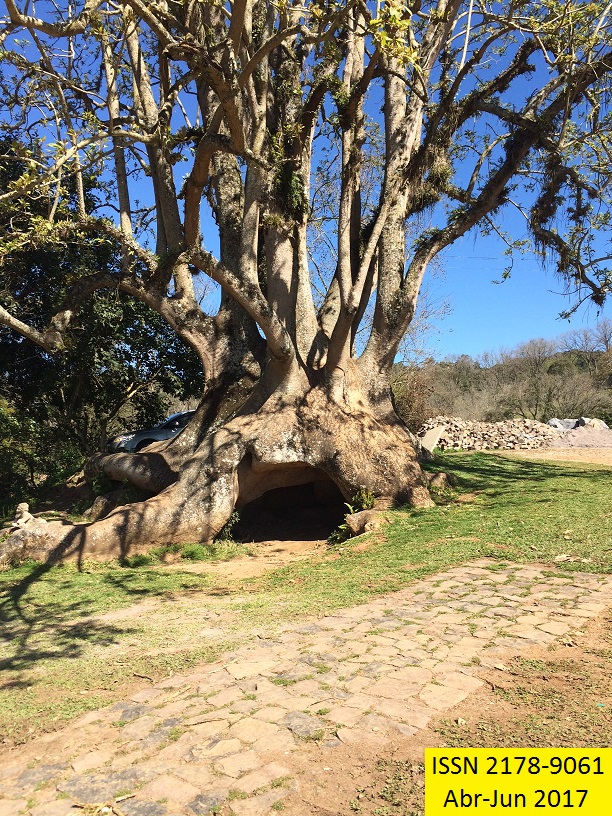Death Seekers as Diplomats of Thana Capitalism / Consumidores de Tragédias Como Embaixadores do Thana Capitalismo
Keywords:
Turismo. Consumidores de Tragédias. Capitalismo. Thana Capitalismo. Mobilidades.Abstract
ABSTRACT
This essay review is not an applied research, nor ethnography conducted in dark tourism places, rather, it connotes with a conceptual debate respecting to the shifts in holiday-making process suffered recently. This marks the rise and expansion of a new facet of capitalism, Thana Capitalism, with a definite class, death-seekers who are prone to consume events, situations of pain and suffering to reinforce their own supremacy. Beyond the so-called interests or sensibility for the other, dark tourism practices hidden a perverse core which is unveiled in this discussion.
KEYWORDS
Tourism. Death Seekers. Capitalism. Thana Capitalism. Mobilities.
RESUMO
Este ensaio não trata de pesquisa aplicada, nem de etnografia realizada em locais de turismo ‘dark’, mas, sim, encaminha um debate conceitual sobre as mudanças nos processos recentes das viagens. Processos que marcam o surgimento e expansão de uma nova faceta do capitalismo, o Thana Capitalismo, que se caracteriza pela presença de uma classe de consumidores propensos a consumir eventos, locais e situações mórbidas ou situações de dor e sofrimento, para reforçar sua própria supremacia. Além dos interesses ou [in]sensibilidade para com o outro, as práticas obscuras do turismo escondem um núcleo perverso, revelado nesta discussão.
PALAVRAS-CHAVE
Turismo. Consumidores de Tragédias. Capitalismo. Thana Capitalismo. Mobilidades.
AUTOR
Maximiliano E Korstanje – Master. Professor in University of Palermo, Buenos Aires, Argentina Curriculum: http://www.igi-global.com/affiliate/maximiliano-korstanje/294465. E-mail: maxikorstanje@hotmail.com
REFERENCIAS
Ariès, P. (2013). The hour of our death. New York: Vintage.
Baudrillard, J. (1996). The perfect crime. London: Verso.
Beck, U. (1992). Risk society: Towards a new modernity (V. 17). London: Sage.
Beck U (2006). La Sociedad del riesgo: hacia una nueva modernidad. Buenos Aires: Paidos.
Beck, U. (2002). The terrorist threat world risk society revisited. Theory, Culture & Society, 19(4), 39-55.
Brunsma, D. & Picou, J.S. (2008). Disasters in the twenty-first century: Modern destruction and future instruction. Social Forces, 87(2), 983-991.
Bryant, W. C. (1948). The genesis of ‘Thanatopsis’. New England Quarterly, 21(2) 163-184
Freire-Medeiros, B. (2014). Touring poverty. Abingdon: Routledge.
Harvey, D. (1999). Time-space compression and the postmodern condition. Modernity: Critical Concepts, 4, 98-118.
Heidegger, M. (2002). Identity and difference. Chicago: University of Chicago Press.
Hitchens, C. (2012). Mortality. London: Hachette UK.
Kaelber, L. (2007). A memorial as virtual traumascape: darkest tourism in 3D and cyber space to the gas Chambers of Auschwitz. E-Review of Tourism Research, 5(2), 24-33
Koch, A. (2005). Cyber citizen or cyborg citizen: Baudrillard, political agency, and the commons in virtual politics. Journal of Mass Media Ethics, 20(2-3), 159-175.
Korstanje, M (2014a). Review: dark tourism and place identity. Journal of Tourism and Cultural Change, 12(4), 369-371. DOI: 10.1080/14766825.2014.892560
Korstanje, M. (2014b). Review: heritage that hurts. Journal of Heritage Tourism, 10(1), 91-92. DOI:10.1080/14766825.2014.892560.
Korstanje, M. E (2014c). Chile helps Chile: exploring the effects of earthquake Chile 2010. International Journal of Disaster Resilience in the Built Environment, 5(4), 380-390.
Korstanje M.E (2015) A difficult World. Examining the roots of Capitalism. New York: Nova Science Publishers.
Korstanje M E (2016) The rise of Thana Capitalism and Tourism. Abingdon: Routledge.
Korstanje, M.E. & George, B. (2015). Dark Tourism: revisiting some philosophical issues. E-review of Tourism Research, 12 (1-2), 127-136.
Korstanje, M.E. & Ivanov, S.H. (2012). Tourism as a form of new psychological resilience: The inception of dark tourism. Cultur-Revista de Cultura e Turismo, 6(4), 56-71.
Korstanje M.E. & Handayani, B. (2016) Gazing at Death: dark tourism as an emergent horizon of Research. New York: Nova Science Publishers.
Miles, W. (2002). Auschwitz: museum interpretation and Darker Tourism. Annals of Tourism Research, 29(4), 1175-1178.
Lennon, J.J. & Foley, M. (1999). Interpretation of the unimaginable: the US Holocaust Memorial Museum, Washington, DC, and ‘dark tourism’. Journal of Travel Research, 38(1), 46-50.
Nietzsche, F. (2003). Beyond good and evil. New York: Penguin.
Quarantelli, E. L. (1960). A note on the protective function of the family in disasters. Marriage and Family Living, 22(3), 263-264.
Quarantelli, E.L. (1980). The study of disaster movies: research problems, findings, and implications. University of Delaware Disaster Research Center (Preliminary Paper).
Raine, R. (2013). A Dark Tourism spectrum. International Journal of Culture, Tourism and Hospitality Research. 7(3), 242-256
Reijnders, S. (2009). Watching the detectives inside the guilty landscapes of Inspector Morse, Baantjer and Wallander. European Journal of Communication, 24(2), 165-181.
Sartre, J.P. (1985). Existentialism and human emotions. New York: Citadel Press.
Sather-Wagstaff, J. (2011). Heritage that hurts: tourists in the memoryscapes of September 11 (V. 4). California: Left Coast Press.
Seaton, A.V. (1996). Guided by the dark: from thanatopsis to thanatourism. International Journal of Heritage Studies, 2(4), 234-244.
Skoll, G. (2010). Social theory of fear. New York: Palgrave Macmillan.
Stone, P. R. (2012). Dark tourism and significant other death: Towards a model of mortality mediation. Annals of Tourism Research, 39(3), 1565-1587.
Tarlow, P. & Korstanje M. (2013). How do you build the trip product? Tourism as a tool for post disaster recovery Fukuyima, Japan. Pasos: Revista de Turismo y Patrimonio Cultural. 10(5), 629-369.
Tzanelli, R. (2013) Olympic Ceremonialism and the performance of national character. Ampshire: Palgrave-Macmillan.
Tzanelli, R (2014a). Embodied art and aesthetic performativity in the London 2012 handover to Rio (2016). Global Studies Journal, 6(2), 13-24.
Tzanelli, R. (2014b). Business as usual? Transforming Brazilian slumscapes in hyper-neoliberal digital environments. The Sociological Imagination. Available at R Tzanelli - The Sociological Imagination, 2014.
Tzanelli, R. (2015). On avatar's (2009) semiotechnologies: from cinematic utopias to chinese heritage tourism. Tourism Analysis, 20(3), 269-282.
Tzanelli R (2016) Thana Tourism and the cinematic representation of risk. Abingdon: Routledge.
Virilio, P. (2010). University of disaster. Cambridge: Polity Press.
White, L. & Frew E. (2013) Dark Tourism: place and identity: managing and interpreting dark places. London: Routledge.
Recebido: 12 JUN 2016
Avaliado: AGO - SET
Aprovado: 3 JAN 2017
Downloads
Published
How to Cite
Issue
Section
License
Autores que publicam nesta revista concordam com os seguintes termos:
Os Autores mantém os direitos autorais e concedem à revista o direito de primeira publicação, com o trabalho simultaneamente licenciado sob a Creative Commons Attribution License que permitindo o compartilhamento do trabalho com reconhecimento da autoria do trabalho e publicação inicial nesta revista.
Autores têm autorização para assumir contratos adicionais separadamente, para distribuição não-exclusiva da versão do trabalho publicada nesta revista (ex.: publicar em repositório institucional ou como capítulo de livro), com reconhecimento de autoria e publicação inicial nesta revista.
Autores têm permissão e são estimulados a publicar e distribuir seu trabalho online (ex.: em repositórios institucionais ou na sua página pessoal) a qualquer ponto antes ou durante o processo editorial, já que isso pode gerar alterações produtivas, bem como aumentar o impacto e a citação do trabalho publicado (Veja O Efeito do Acesso Livre).








